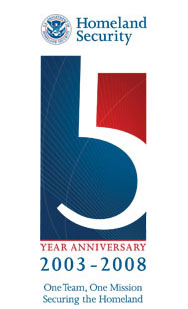Housing, Gulf Coast Rebuilding Sectors
- After hurricane protection, the next most important component to recovery for both Louisiana and Mississippi is housing. The Community Development Block Grant (CDBG) program administered by HUD was chosen to fund housing rebuilding in Louisiana and Mississippi.
Community Development Block Grants
- In the Third Supplemental (December 2005) as part of the DOD Reallocation package, $11.5 billion in CDBG funds was allocated to Gulf Coast states. Because statutory language mandated that no state could receive more than 54% of the CDBG funds, HUD allocated the maximum amount -- $6.2 billion -- to Louisiana. Mississippi received $5.1 billion, Alabama, $74 million, Texas $74.5 million, and Florida $83 million.
- Both Mississippi and Louisiana chose to use their CDBG funding to create state-designed and administered homeowner grants programs.
- MS designed its Homeowners Assistance Program and to date has administered more than 14,100 checks, representing a total of $1.02 billion in assistance. Another $263 million has been provided through the state's Small Rental Program to increase the availability of rental property in the region.
- Louisiana, however, had more need than their original CDBG allocation could afford so OFC, working with State of Louisiana, worked diligently with the State of Louisiana to get additional CDBG funds to restore housing. As a result, OFC:
- Established the best basis of knowledge for assessing the housing damage in the region. This was accomplished by coordinating SBA, FEMA, HUD, and other databases to create a definitive housing damage report.
- Used this housing damage information to work with Louisiana to determine its exact additional needs while upholding the government's fiduciary responsibility to American taxpayers.
- OFC embarked on a thorough due diligence process with the state to determine available resources and the additional need. The outcome was a mutually agreed-upon $4.2 billion of CDBG funds to cover Louisiana's unmet community development needs.
- As a result of the OFC/State of Louisiana agreement, the President requested and Congress granted, an additional $4.2 billion in CDBG funding for Louisiana as a part of the supplemental package passed in June 2006.
- The enactment of this appropriation provided a total of $10.4 billion in CDBG funds alone for Louisiana to both design and administer its Road Home Program.
- OFC also worked with Congress to allocate an additional $1 billion in CDBG for the other four Gulf states (Alabama, Florida, Mississippi, and Texas) in the June 2006 supplemental.
- OFC has hosted a weekly conference call since November 2006 aimed at improving the performance and efficiency of the Road Home program. This call includes all stakeholders, including FEMA, HUD, the Governor's office, Louisiana Office of Community Development, Louisiana Recovery Authority, ICF International, and others.
- OFC continues to work with HUD and the State of Louisiana on the implementation of the Road Home program.
- OFC has engaged in discussions with the state regarding the projected shortfall in the Road Home program. Coordinator Powell met with Gov. Blanco on June 6, 2007, and OFC continues to analyze data on the program to determine its status.
Public Housing
- OFC has worked with HUD to coordinate and improve outreach from Housing Authority New Orleans (HANO) to public housing residents. For example, since November 2006, at the urging of OFC, HANO has established a staffing presence at the City of New Orleans' Welcome Home Center. HANO also approved the placement of a regional HUD staff person at the Houston TX Journey Home Center to further assist residents.
Temporary Housing
- OFC worked with FEMA to expedite the implementation of FEMA temporary housing donation policy. OFC coordinated this effort with FEMA leadership to initiate implementation of the agency's Temporary Housing Donation Policy and conduct outreach to potential recipient groups.
- OFC worked with FEMA and HUD to extend the FEMA temporary housing program until March 2009 while initiating a FEMA/HUD partnership to transfer those in FEMA temporary apartment housing to the longer term housing case management and programmatic expertise of HUD.
- After becoming aware of the formaldehyde problem in FEMA trailers in July 2007, OFC participated in the formulation of policies to allow those in trailers to obtain alternative temporary housing if they choose to do so.
- OFC remains engaged with FEMA and HUD on the most effective means to provide a smooth transition for temporary housing residents into more permanent housing.
Other Housing Initiatives
- OFC reached out to the Financial Services Roundtable (FSR) to explore the creation of a multi-bank consortium that could help jumpstart affordable housing in the Gulf Coast. OFC staff participated in a small working group that has been tasked with bringing together the appropriate person(s) to craft a model for the FSR members' review and approval.
- OFC regional staff initiated, and led the collaborative development of a state-FEMA partnership to assist displaced Louisiana evacuees in returning home.
- OFC successfully facilitated a partnership between the Louisiana Family Recovery Corps (LFRC) and the City of New Orleans in establishing a coordinated repatriation initiative. Prior to OFC intervention, the LFRC had been unable to secure an agreement with the City of New Orleans to collaborate in their similar evacuee assistance efforts. As a result of OFC involvement, the LFRC contributed $250,000 toward the operation of the City's Welcome Home Center, which was minimally funded in the municipal budget. LFRC operates a call center with intensive case management for evacuees living out of state that plan to return to New Orleans within a 6-month timeframe. Upon return to New Orleans, these LFRC-assisted evacuees are transitioned to case managers at the City of New Orleans' Welcome Home Center who can direct them to critical local services and assistance.
This page was last modified on October 23, 2007


